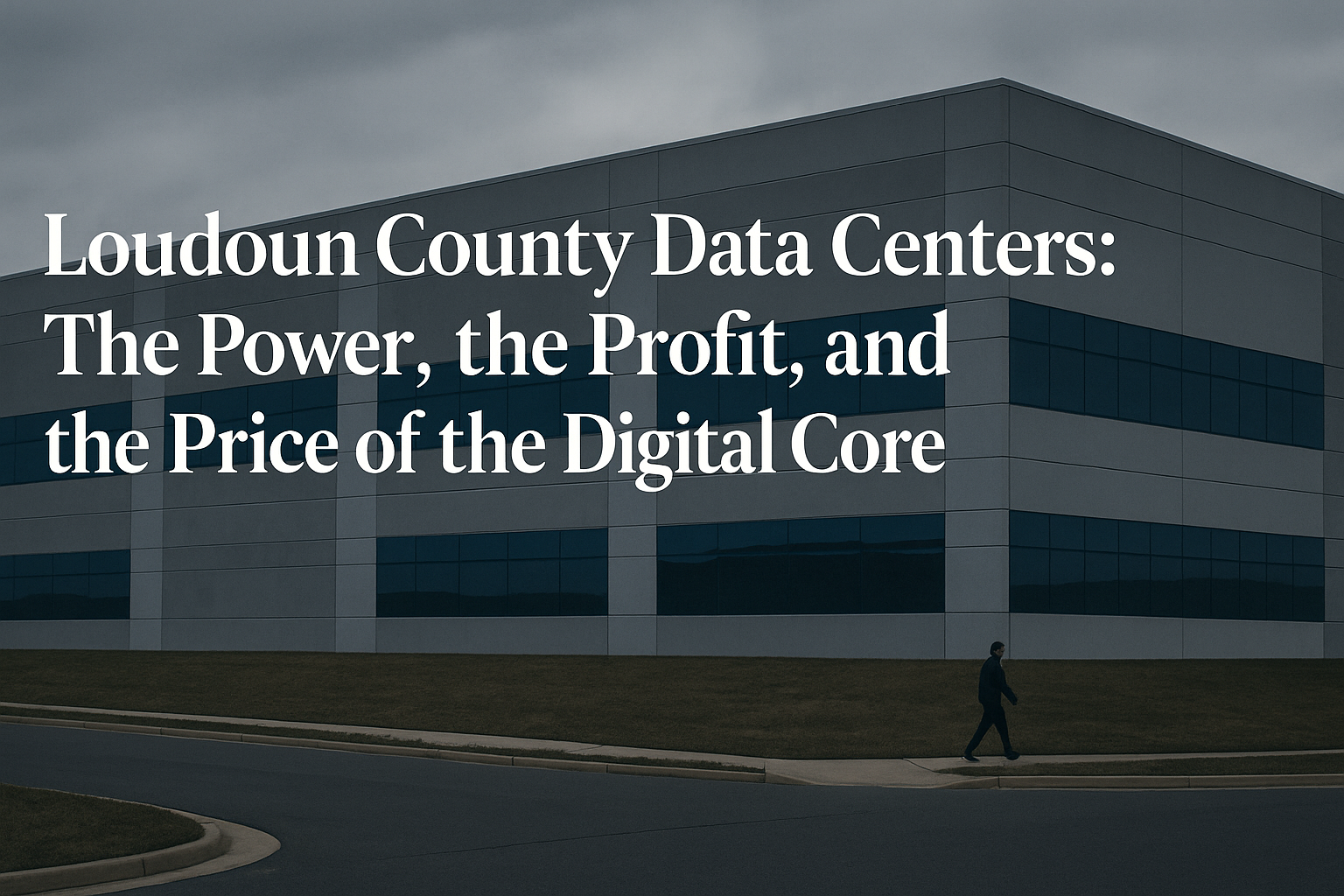Introduction: The Heartbeat of the Internet
The Loudoun County data centers in Virginia have become the core of the world’s online life. Every click, stream, and transaction often passes through this region. Once farmland, Loudoun now holds the largest cluster of data centers on Earth. However, this transformation brings both prosperity and problems for those who live nearby.
1. The Rise of Loudoun County’s Digital Empire
Loudoun County’s quiet fields turned into a network of giant, windowless buildings that store and manage global internet data. Nearly two hundred centers operate here, powering cloud services for companies like Amazon, Google, and Microsoft.
Locals call it “Data Center Alley.” The nickname reflects both pride and frustration. The county earns billions in revenue, becoming the richest in America. But behind the numbers, residents feel the pressure of endless construction, bright lights, and constant mechanical noise.
Even though the centers occupy just three percent of county land, they consume nearly forty percent of its budget. For officials, this means money for schools, roads, and public safety. For residents, it often means lost peace and rising anxiety.
2. The Human Cost of Expansion
Emily Kasabian bought her home far from industrial sites, hoping for quiet surroundings. Two years later, a sign appeared across her street—another data center was coming.
She felt betrayed. The absence of centers had been the reason she and her neighbors moved there. “I would not have bought this house,” she said. Her story now echoes across several Loudoun communities.
A single data center can stretch over 100,000 square feet, towering over nearby homes. Residents describe them as “fortresses” that replace trees with gray concrete and endless humming.
Thirteen years ago, Greg Pirio looked out at green woods filled with birds. Today, a massive blue-lit data center looms outside his window. “There are no birds anymore,” he said.
3. The Environmental Strain
Beyond noise, Loudoun County data centers drain huge amounts of electricity and water to keep servers cool. Virginia’s power grid struggles to keep up with the demand. As a result, experts worry about future blackouts during peak use.
Cooling systems use millions of gallons of water each day. During hot summers, this heavy usage sparks fears of shortages for local residents and farms. Environmentalists argue that local leaders often approve projects without studying their long-term impact.
However, supporters claim these centers are necessary. Without them, the digital economy, remote work, and global connectivity would collapse. The challenge, therefore, is not whether to grow—but how to grow responsibly.
4. Finding Balance Between Growth and Quality of Life
Loudoun officials now walk a tightrope. On one side lies enormous tax revenue from Loudoun County data centers; on the other lies growing public anger. Cutting expansion could hurt the county’s finances, but ignoring residents could damage community trust.
Homeowners fear their property values will drop. Others say their neighborhoods are turning industrial. In response, some residents propose stricter zoning rules and limits on construction near homes.
Meanwhile, tech companies are promising change. Amazon, Microsoft, and Google claim to invest in renewable energy and water-saving technologies. They highlight sustainability reports and pledge cleaner operations.
5. Progress or Price? The Ongoing Debate
Despite promises, skepticism remains. Residents still hear the never-ending hum of servers. They see concrete walls where meadows once stood. For many, that sound has become the voice of both progress and loss.
The truth is, Loudoun County data centers represent the paradox of the modern world. They connect billions of people, store our data, and power our lives. Yet, their growth challenges what it means to live in balance with nature and community.
As the debate continues, Loudoun’s future will depend on compromise—sustainable policies, community respect, and innovation that serves both people and technology. The hum will not fade soon. It will continue to remind everyone of what the internet truly costs.
